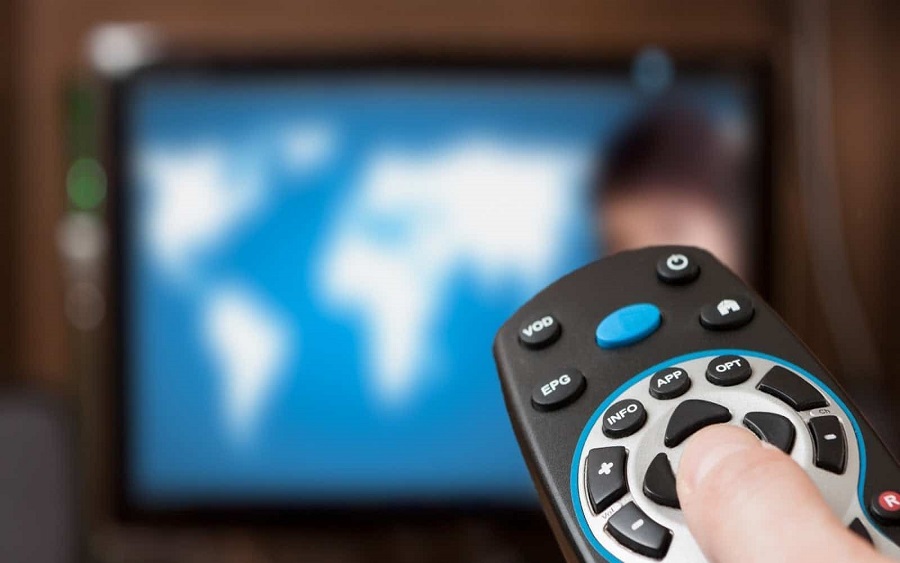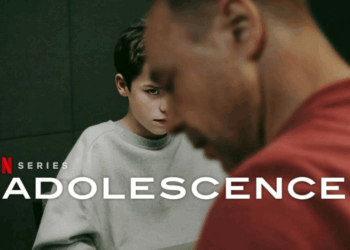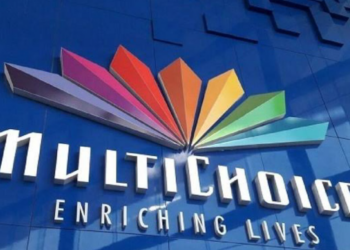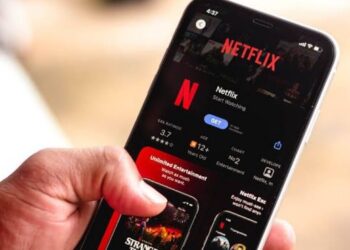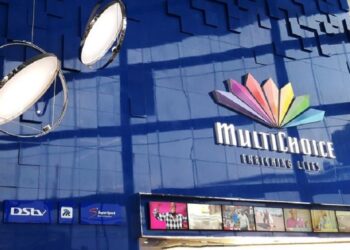One of the spillovers of the pandemic is the recent ban on large gatherings and outdoor entertainment.
After being stuck at home for three months, we have moved to a phased and gradual easing of the lockdown where certain guidelines still hold sway. Gatherings of more than 20 people are still considered forbidden; cinemas are yet to open, and the same is the case with viewing centers and other relaxation spots.
Nigerians, like people all over the world, still have to sit at home and find ways to amuse themselves. Although the general impression is that sitting at home should provide cheaper entertainment, this is not true.
Subscriptions to PayTV and online streaming platforms are not free. Unstable electricity supply also means that Nigerians, more often than not, have to use generating sets to get power. Amid all of these, Nigerians still have to cope with increasing prices from these service providers.
Reviewed prices from PayTV
In July, StarTimes, one of Nigeria’s PayTV operators, announced an upward review of its subscription prices from August 1, 2020.
With the review, the price of the basic bouquet moved from N1,300 to N1,700 monthly offering 80 channels, while the classic bouquet price moved from N1,900 to N2,500 monthly offering 100 channels.
(READ MORE: Walt Disney donates tons of food, 100k masks, others to communities, health workers over COVID-19)
Smart bouquet moved from N1,900 monthly to N2,200, while Super Bouquet moved from N3,800 monthly to N4,200. However, the lowest bouquet, being the Nova bouquet, remained N900 with over 43 channels.
Viki Liu, StarTimes’ brand and marketing manager, said during a virtual press conference that the price increase was caused by the increased value-added tax (VAT) rates as well as the foreign exchange rate which had impacted the company’s cost of operation.
“Our business is not exempted from the effect of the naira depreciation affecting all businesses in the country. All of our foreign content is bought in dollars and to continually serve our subscribers the best content, the subscription price has to be reviewed upwards,” Liu said.
This is the only price increase the PayTv has had, even though the company has added “15 new channels in the last six months; expanded its educational programs for kids with more channels to provide the latest information on COVID-19; and also introduced the pay-as-you-go policy which enables people to subscribe on a daily or weekly basis,” Liu said.
In a phone chat with Nairametrics, PR Manager of Startimes Nigeria, Lazarus Ibeabuchi, made reference to past reviews where StarTimes had reduced costs of some bouquets.
“For instance, in September 2017, we scrapped our Unique Bouquet (N3800) from our DTT subscription packages and crashed its major channels into Classic Bouquet whilst reducing Classic Bouquet price from 2600 to 2400. In 2018, Classic Bouquet was further reduced from N2400 to N1900,” he explained, insisting that the PayTV service provider is not out to exploit customers.
(READ MORE: Startimes, DStv, Others adjust prices as Nigerian businesses battle tough economic conditions)
On the other hand, MultiChoice in May, first announced a slight review to reflect the new VAT rates across its DStv and GOtv subscriptions. Effective June 1, DStv Premium subscription increased from N15,800 to N16,200, Compact Plus moved from N10,650 to N10,925, while the Compact bouquet was increased from N6,800 to N6,975.
The Confam bouquet became N4,615 as against the former price of N4,500, while Yanga bouquet increased from N2,500 to N2,565 monthly subscription.
For GOtv subscribers, GOtv Max bouquet increased from N3,200 to N3,280, while GOtv Jolli now goes for N2,460 and GOtv Jinja subscribers will pay N1,640.
Though the increase was very minute, almost insignificant, consumers complained about the timing being wrong.
To their credit, both PayTV operators delayed the implementation of the new VAT rates – MultiChoice for 4 months, and StarTimes for 6 months – even though the new VAT rates took effect in February 2020.
Note, however, that MultiChoice phased out 4 lower-tier subscription packages, from June 1, 2020. This means that the DStv Family, DStv Access, GOtv Plus, and GOtv Value subscription packages are no longer available for customers.
(READ MORE: Mr Eazi raises $20 million fund to invest in African artists)
Sources within MultiChoice declined to comment, but according to the statement on the website, the phasing out of the packages is part of “ongoing efforts to ensure our customers get improved choices and better value for money whilst delighting them with content that resonate with them.”
The company said that regular reviews of packages, which sometimes result in addition or removal of packages, are done to create capacity for new package additions and offer customers “more choice and great value”.
Information on the company’s website shows that the company started the year with the Step up promos for customers, and later offering as much as 44% and 75% discounts for eligible customers in the We’ve Got You campaign during the lockdown, but this was hardly remembered as customers complained over the price reviews.
Before 2020, the last review was done in August 2018, when MultiChoice slashed the price of GOtv Max package from N3,800 to N3,200 while other GOtv packages remained fixed.
At the same time, the price of the DStv Premium package rose from N14,700 to N15,800; Compact Plus from N9,900 to N10,650; Compact from N6,300 to N6,800; Family from N3,800 to N4,000 and Access, from N1,900 to N2,000.
The spike in inflation rates was given as reason for the increase as well.
However, the outrage over the weekend was palpable, when Multichoice sent out messages to some of its DStv subscribers notifying them of a new increase to their bouquet prices. Coming three months after the last review, the outrage from customers was understandable.
(READ MORE: Chainlink: Most valuable DeFi crypto is attracting investors again, gains over 8%)
In a message sent to customers, Multichoice said: “We periodically review our pricing, taking into consideration factors such as inflation and operational costs. We acknowledge that the people of Nigeria are living under increased economic pressure and we have made efforts to freeze the subscription prices in the last year, barring any extreme factors such as the devaluation of currency and changes to VAT mandated by the government.”
Even before the increase, the clime was suggestive of a possible increase from Multichoice. What is not yet clear is whether GOtv subscribers will be affected by this recent increase, or if theirs has been reserved for another time.
From September 1, DStv Compact price would increase to N7,900 up from N6,975, while Compact plus would increase from N10,925 to N12,000, and DStv Premium jumps overboard from N16,200 to 18,400.
In retrospect, Multichoice could have borrowed a leaf from StarTimes, by capturing both the increased VAT rates and operations costs in a single increase, instead of carrying out price reviews twice within a space of three months.
| Package | Price at April 2020 (N) | Reviewed price (N) | Difference (N) | % increase | |
| DStv | Premium | 15800 | 18400 | 2600 | 14.1% |
| Compact plus | 10650 | 12000 | 1350 | 11.3% | |
| Compact | 6800 | 7900 | 1100 | 14% | |
| Confam | 4500 | 4615 | 115 | 2.5% | |
| Yanga | 2500 | 2565 | 65 | 2.5% | |
| Gotv | Max | 3200 | 3280 | 80 | 2.4% |
| Jinja | 1600 | 1640 | 40 | 2.4% | |
| Jolli | 2400 | 2460 | 60 | 2.4% | |
| Startimes | basic | 1300 | 1700 | 400 | 23.5% |
| classic | 1900 | 2500 | 600 | 24% | |
| smart | 1900 | 2200 | 300 | 13.6% | |
| super | 3800 | 4200 | 400 | 9.5% |
A close look will reveal that even though Startimes increased its prices with N300 – N600, the percentage increase was high because the prices of its bouquets were already really low. On the other hand, MultiChoice made little percentage increments, which only resulted in higher figures because the bouquet prices are higher.
Online streaming alternatives and why they are cheaper
Among the reactions, some subscribers mentioned alternatives like Netflix, IrokoTV, SceneOne TV, and Live Football TV app.
These online streaming platforms have also provided options for sit-at-home entertainment, especially during this pandemic.
So, how do they manage to keep their prices the same despite the challenges hitting others in the entertainment space?
READ: MultiChoice plans reduction in DSTV subscription fees across some African countries
PayTV operators like StarTimes and Multichoice pay for broadcasting rights in foreign currencies, and with the heated competition where both companies seem to be in a race for broadcasting rights, there is no doubt that they are spending a lot more than they had budgeted for at the beginning of the year when the exchange rate was $1 to N360; now, the exchange has gone over N470 to $1.
Even though these foreign companies employ lots of Nigerians, they sometimes have to import experts from other countries to service or repair their equipment, and this again means more foreign exchange payments.
(READ MORE: U.S dollar stays flat as America’s Federal Reserve becomes “extraordinarily uncertain”)
They also have to keep their outfits running with power supply, and the unstable electricity in Nigeria makes it even more complicated. Most times, they have to resort to alternate power sources, and we are aware that the fuel pump price recently went up from N125 to N145 per liter.
On the other hand, online streaming platforms do not have to deal with some of these operating costs. They purchase rights to the movie once and make it available to paying subscribers. This practically explains why their costs have remained stable, and relatively cheaper, despite the recent challenges.
Netflix, for instance, runs a basic subscription of N2,900 (1 device access), standard subscription at N3,600 (2 device access), and Premium at N4,400 (4 devices access). There’s also IrokoTV which has been nicknamed ‘Netflix of Africa’ by some, offering its plans for equally low prices.
The Live Football TV app is another alternative, a totally free app for football lovers. It provides match schedules with multi-platform broadcast listings, including match stats, events, live scores, news, and analysis. In truth, people who subscribe to PayTV simply for football reasons might find this a better and cheaper alternative.
However, the catch is this: even though the online streaming platforms offer cheaper or even free services, this comes at an extra cost – the customer has to purchase data in order to stream them.
Data is still not free, at least not in Nigeria.

